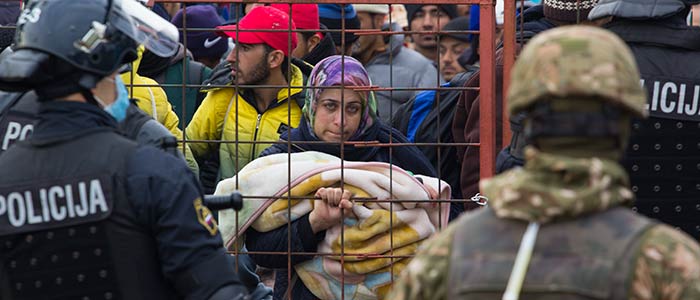Vienna rebuffed sharp criticism from the European Union and implemented its plan to let no more than 3,200 migrants and refugees into its territory per day, even if they are planning to move on elsewhere. It will also limit asylum claims to 80 a day.
Meanwhile, EU leaders agreed to press ahead with the “full and speedy implementation” of the so far sluggish EU-Turkey action plan, signed off last year. Under the plan, Turkey will receive €3bn from the EU to build a refugee facility to host Syrians.
It also entails greater transfer of refugees from Greece back to Turkey, stronger cooperation to tackle migrant smuggling in coastal areas and greater and more urgent efforts on behalf of Turkey to prevent migrants illegally leaving for the EU.
Turkey, which is currently hosting around 2.5 million refugees, is not likely to appreciate indications from the European Council that it has not done enough.
The council statement said flows of migrants arriving in Greece from Turkey “remain too high” and that the council wanted to see “a substantial and sustainable reduction” in the number of people risking the crossing.
“This calls for further, decisive efforts also on the Turkish side to ensure effective implementation of the action plan,” it said.
German chancellor Angela Merkel, who spearheaded the EU-Turkey action plan, said she was pleased that things are moving forward and the action plan is a priority.
Turkey had previously complained that the process of putting the plan, agreed last October, in place was too slow.
The crisis has split the EU, with leaders criticising one another for their handling of the situation. Merkel’s open door policy and plans to redistribute refugees among member states were continually met with resistance as the crisis has unfolded.
The Visegrad Four (v4) countries, Poland, the Czech Republic, Slovakia and Hungary, have all rejected the EU resettlement plan and called for the border with Macedonia and Greece to be sealed off and the two countries to be excluded from the Schengen Agreement on open borders. Austria has also echoed calls for tighter restrictions.
European Council president Donald Tusk called on member states to avoid a battle between their respective plans and said “it makes no sense at all because it creates divisions within the EU”.













